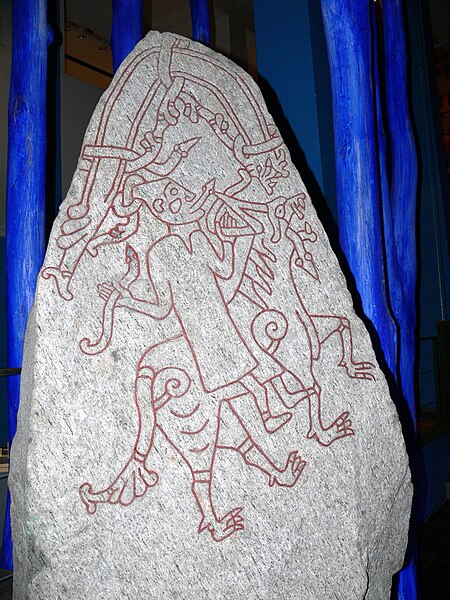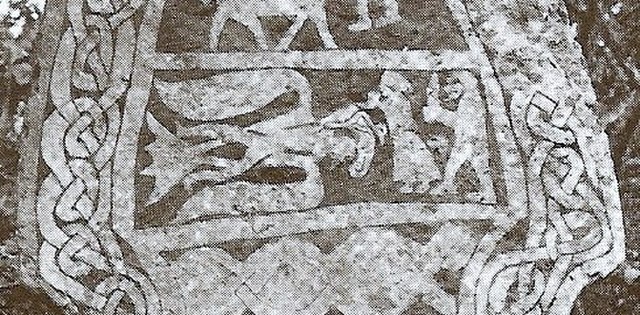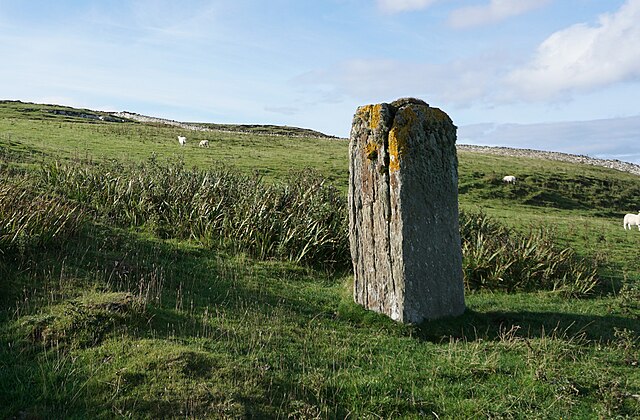Fárbauti is a jötunn in Norse mythology. In all sources, he is portrayed as the father of Loki. Fárbauti is attested in the Prose Edda, written in the 13th century by Snorri Sturluson, and in kennings of Viking Age skalds.
Punishment of Loki, who is depicted with his wife Sigyn, as shown on a stamp from the Faroe Islands
A jötunn is a type of being in Germanic mythology. In Norse mythology, they are often contrasted with gods and other non-human figures, such as dwarfs and elves, although the groupings are not always mutually exclusive. The entities included in jötunn are referred to by several other terms, including risi, þurs and troll if male and gýgr or tröllkona if female. The jötnar typically dwell across boundaries from the gods and humans in lands such as Jötunheimr.
10th-century picture stone from the Hunnestad Monument that is believed to depict a gýgr riding on a wolf with vipers as reins, which has been proposed to be Hyrrokkin.
The Gotlandic image stone Stora Hammars III is believed to depict Odin in the form of an eagle (note the eagle's beard), Gunnlöð holding the mead of poetry, and Suttungr.
The Yetnasteen - a standing stone in Rousay in Orkney, held in local folklore to be a giant or jötunn that has been turned to stone.




